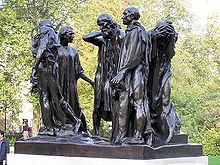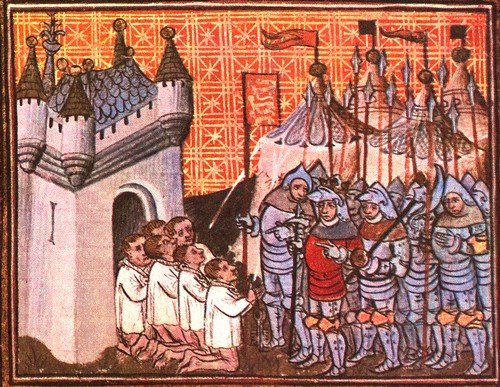I'm reading an old history book about my ancestors entitled "Rulewater And Its People: An Account Of The Valley Of The Rule And Its Inhabitants" published in 1907 by George Tancred. In it, I'm having problems understanding a sentence, italicized below:
The King issued a peremptory order for all Turnbulls in the district to submit themselves to the King's authority. The principal men of the clan immediately made their submission, coming before him in linen sheets, with withies about their necks, and put themselves 'in the king's will,' as it was termed. It is said that the King ordered every tenth man to suffer death.
Looking up withies gives me (from here)
n. pl. with·ies 1. A rope or band made of withes. 2. a. A long flexible twig, as that of an osier. b. A tree or shrub having such twigs.
My initial thought was that "in the king's will" was a pun on "will". As in somehow my ancestors got themselves written into the king's last will and testament. Now that I see the definition, I wonder if "will" could mean a plant owned by the king? As in how game was owned by the king in the past?
I'd really like to know what my ancestors did, why it was presumably funny to them, and why it irritated the King so much. If it helps, this took place during the reign of King James IV around 1510.
Also interestingly, the word "king" in 'in the king's will' is NOT capitalized, I just double checked. So its not The King its just king. Not sure if this is a typo or an important clue.


